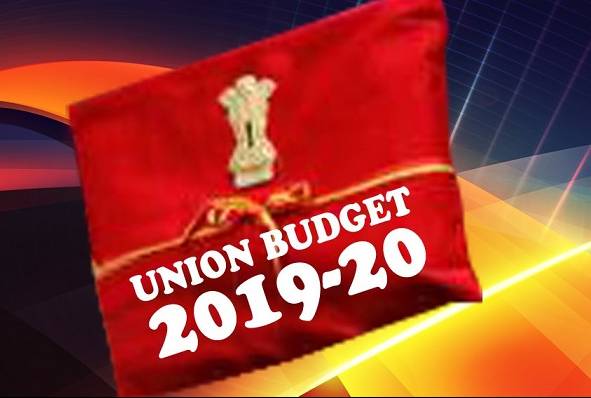+91-11-46628866 | info@compad.in Schedule a Meeting →
Union Budget 2019: Key Highlights

Union Budget 2019: Key Highlights
The Union Budget for 2019-20 was presented in the Parliament, with PM Modi terming this budget as one full of hope. A slew of measures have been taken to make India a lucrative destination for investors, with particular focus on encouraging foreign investments, MSME, startups, infrastructure, adopting legal transformations etc, in line with the Economic Survey Report, 2019 which had already hinted that a massive thrust would be given to rake in investments and provide a massive push to the infrastructure sector. The major takeaways are:
Investment and Infrastructure:
- To boost investment, the government will encourage foreign portfolio investors to invest in infrastructure debt funds, introduce credit default swaps for the infrastructure sector, deepen the corporate bond market, and encourage equity investment by NRI. The overall investment planned to the tune of Rs 100 lakh crore (around $1.46 trillion) in the sector over the next five years.
- India will become a $3 trillion economy in the current fiscal year and a $5 trillion economy by 2024. Towards it, India will invest heavily in infrastructure and job creation.
- The government has set an investment target of ?80,250 crore for Phase 3 of the Pradhan Mantri Gram Sadak Yojana. The Government has also allocated the highest-ever budgetary support of Rs 83,016 crore to the highways sector and Rs 64,587 crore for railways.
- The Government will bring out a policy framework for making India a global hub of aircraft financing and leasing activities.
- Government to open FDI in aviation, insurance, animation and media from the existing cap of 49 per cent.
- Local sourcing norms will be relaxed for the single-brand retail sector.
- The government has also proposed a relief on securities transaction tax, by restricting it only to the difference between settlement and strike price in case of exercise of options.
- The government will encourage global companies to set up large manufacturing companies in India, to push growth. Further, a Proposal to create MRO (Manufacturing, Repair and Operate) industry which will further attract FDI in India.
- To boost investment the Government is aiming for $14.5 billion (Rs 1.05 lakh crore) target for disinvestment proceeds in FY20.
- To provide an impetus to the Ease of Doing Business, the existing labor laws in India would be streamlined into a set of four labor codes.
- Fiscal Deficit has been cut to 3.3% of the GDP from an earlier 3.4%.
- Allow FIIs and FPIs to invest in debt securities issued by NBFCs.
- A credit guarantee enhancement corporation would be set up with specific focus on infra sector.
- The Government, in a tectonic shift, has considered raising part of its gross borrowing from the overseas market in foreign currency, keeping in mind of the prevailing geo-political conditions.
Startups and MSME:
- Under the interest subvention scheme, two per cent interest subvention to all GST registered MSMEs in the current year on all fresh and incremental loans.
- Government also plans to open a payment portal for MSMEs. Investment in MSMEs will receive a big boost through the portal if the delays in payments to SMEs and MSMEs are eliminated.
- Loan of Rs 1 crore for MSMEs being cleared within 59 minutes through an online portal.
- The startups and investors who file requisite declarations will not be subjected to any kind of scrutiny in respect of valuation of share premium. A mechanism of e-verification will be put in place and with this the funds raised by startups will not require any tax scrutiny.
- Category 2 alternate investment funds (AIFs) who would be investing in startups would completely exempted from angel tax.
- Special arrangements will be made by Central Board of Direct Taxes (CBDT) for pending reviews and cases related to Startups.
- Government will take up measures to make RBI & SEBI depositories inter-operable.
- Existing KYC norms for FPIs to be rationalized and simplified to make it more investor-friendly.
- A new television channel dedicated for Startups, to provide a platform for startups to disseminate information in the industry.
- ‘Stand-Up India' Scheme to continue till 2025.
Other key takeaways:
- Companies having a turnover up to Rs 400 crore will be taxed at 25 per cent from a current rate of 30 per cent. This will cover 99.3% proportion of companies in India.
- Creation of a Social Stock Exchange under SEBI for listing social enterprises and voluntary organisations.
- To allow FPIs to subscribe to listed debt papers of Real Estate Investment Trusts (REITs).
- On purchase of high-rate pooled assets of NBFC amounting of Rs 1 lakh crore in this FY, Government will provide one-time 6 month credit guarantee.
- Regulation of HFCs (Housing Finance Companies) to move to RBI from National Housing Bank.
- Surcharge increased on individuals having taxable income from Rs. 2 crores to Rs. 5 crores by 3 per cent and Rs. 5 crores and above by 7 per cent.
- To enhance the attractiveness of International Financial Services Centre (IFSC) as a financial hub of India, the Government has proposed to roll out more tax sops such as extending 100% tax holiday from 5 years to 10 years and tax-free interest to non-residents lending funds to units in IFSCs.
For more, click here